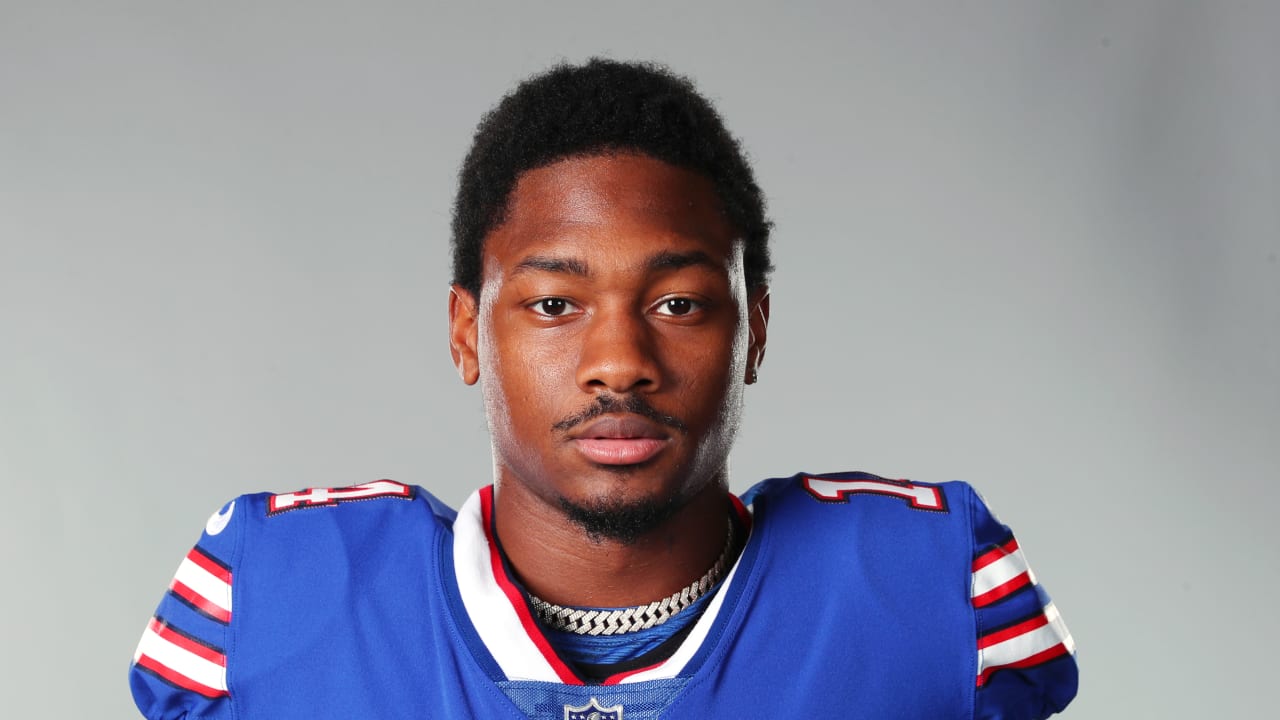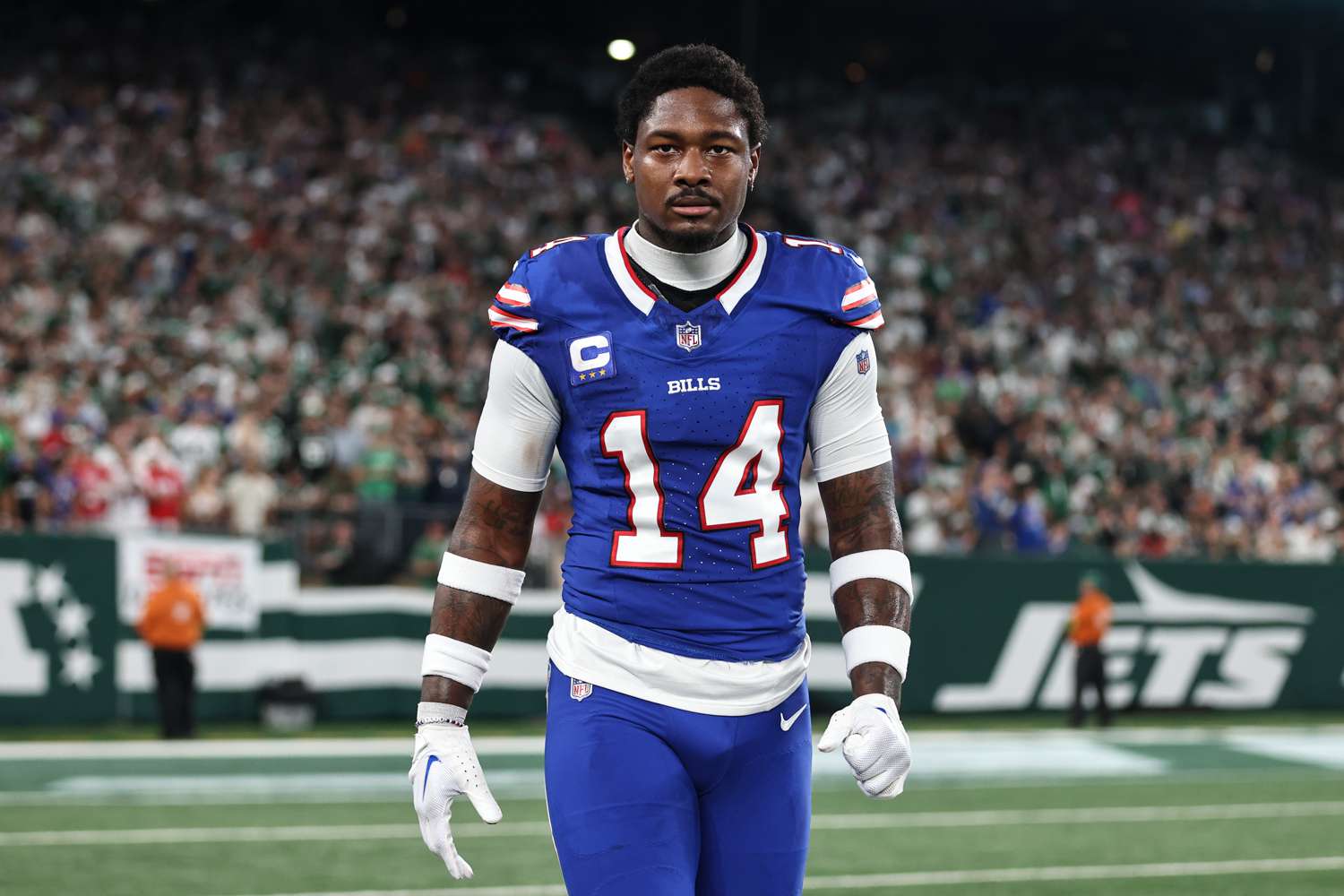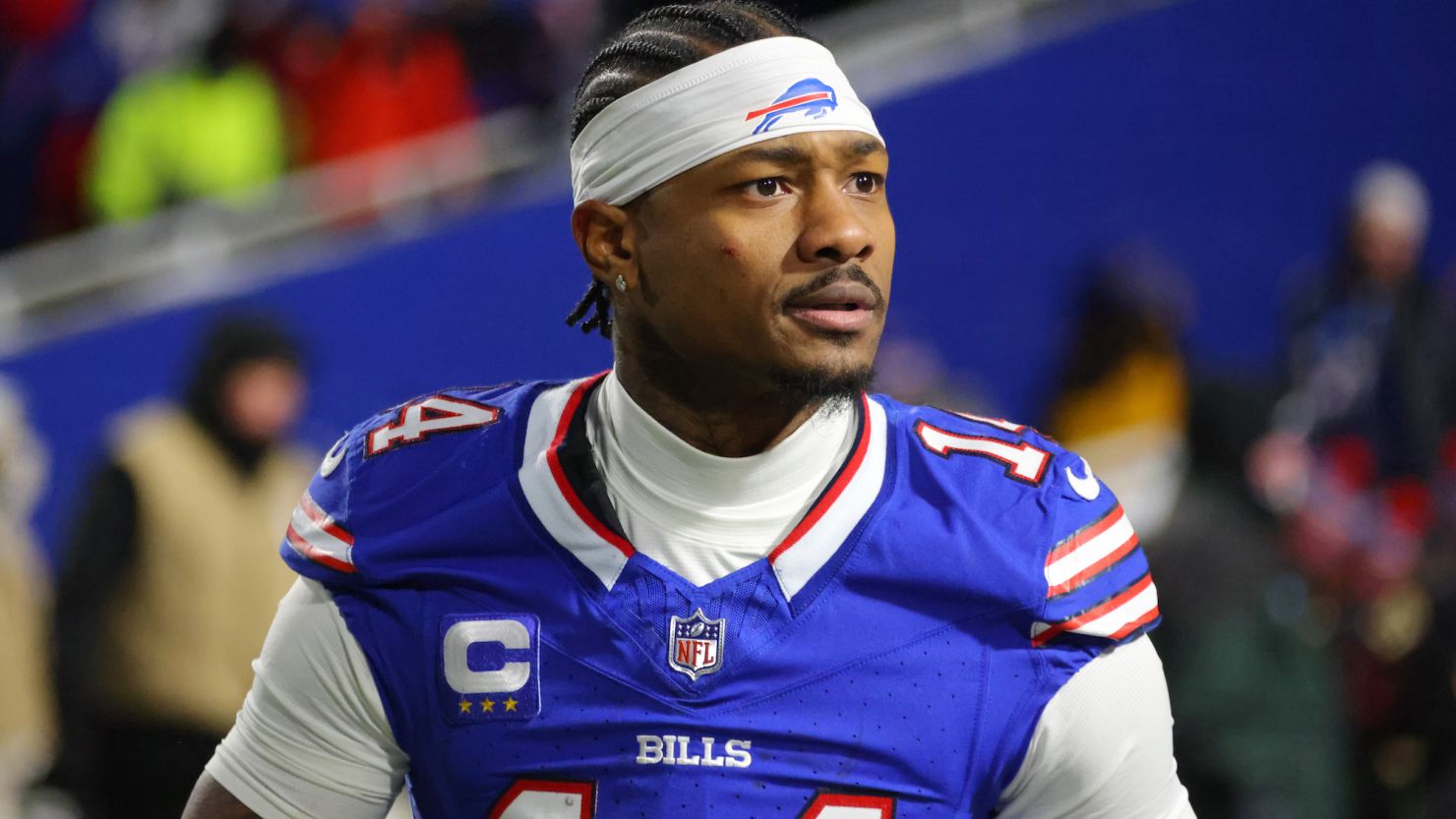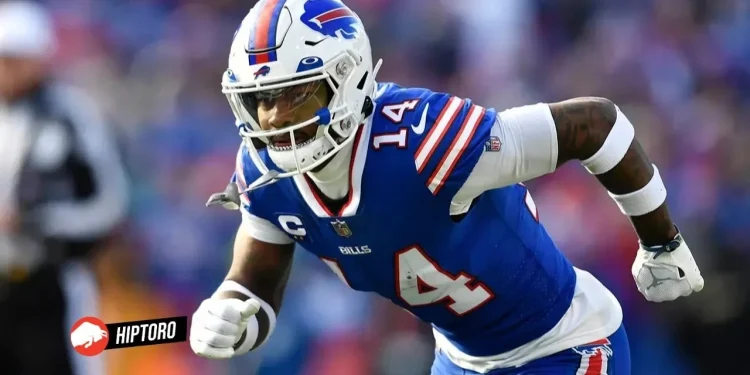The Buffalo Bills, a team known for its strategic acumen in the NFL, recently made headlines with its decision regarding wide receiver Stefon Diggs. In an unexpected twist, the Bills had Diggs available for trade discussions but drew a line when it came to the Kansas City Chiefs, a team with a history of clashing against them in crucial postseason games.
This move has sparked a multitude of discussions and analyses, shedding light on the intricate strategies teams employ to maintain or gain an upper hand in the competitive landscape of the NFL.

Buffalo Bills’ Trade Clause Against the Kansas City Chiefs
According to Chris Simms of Pro Football Talk, the Bills were willing to entertain trade discussions for Diggs with any team in the league—except for the Kansas City Chiefs. This decision underscores the Bills’ strategic approach, considering the Chiefs’ recent dominance in the NFL, including their aspiration to become the first team in NFL history to three-peat as Super Bowl champions.
The history between the Bills and the Chiefs, especially in the postseason, is a testament to the rivalry that has developed over the years, making the decision not to strengthen a direct competitor a calculated move.

The Impact on the Teams and the Players
For Josh Allen, the Bills’ starting quarterback, this trade scenario presents an opportunity to showcase his abilities sans Diggs, echoing a similar situation with Patrick Mahomes after Tyreek Hill departs from the Chiefs.
The dynamics of the trade not only affect the teams’ strategies but also the careers and legacies of the players involved. It highlights the competitive spirit and the personal challenges athletes face in proving their worth and capability to lead their teams to victory under changing circumstances.
After the Buffalo Bills Week 1 loss to the New York Jets, quarterback Josh Allen reportedly snapped at wide receiver Stefon Diggs in the locker room, saying, "It's one f*cking game!" Per The Athletic pic.twitter.com/Xm5Mg1gwpR
— NFL Rumors (@nflrums) April 5, 2024
The Receiver Dilemma in Kansas City Chiefs
The Chiefs, on their part, face their challenges in the wide receiver department. With last year’s leading receiver, Rashee Rice, encountering legal troubles and a lack of depth in the receiving corps, the Chiefs’ need for a reliable wideout is more pressing than ever as they head into the 2024 NFL Draft.
The Bills’ refusal to trade Diggs to the Chiefs not only highlights the strategic gamesmanship between NFL teams but also puts the spotlight on the Chiefs’ urgency to bolster their receiver lineup to maintain their championship aspirations.
The Aftermath of the Trade
The Bills’ decision to trade Diggs to the Houston Texans for a 2025 second-round pick—while also dealing with a significant amount of dead cap space—has sparked discussions about the team’s long-term strategy and its implications on the Bills’ competitive edge in the league.
This move, coupled with the historical context of their rivalry with the Chiefs, sets the stage for an intriguing NFL narrative, showcasing the complexities and strategic depth of team management and player dynamics in professional football.

The NFL Landscape Post-Trade
As the NFL draft month unfolds, the repercussions of the Diggs trade continue to ripple through the league, affecting team strategies, player dynamics, and fan expectations. The strategic decision by the Bills not only underscores the highly competitive nature of the NFL but also highlights the multifaceted considerations teams must navigate in their pursuit of glory.
The Diggs trade saga is a compelling chapter in the NFL’s storied history, offering insights into the strategic considerations that shape the league’s competitive landscape.
In a league where every move can tilt the balance of power, the Bills’ decision not to trade Diggs to the Chiefs stands out as a bold statement of strategic intent. It’s a reminder of the chess-like maneuvering that defines the NFL, where teams constantly seek to outwit their opponents both on and off the field.
The saga of Stefon Diggs’ trade is more than a transaction; it’s a narrative of rivalry, strategy, and the unending quest for supremacy in the high-stakes world of professional football.

Source: Yardbarker









